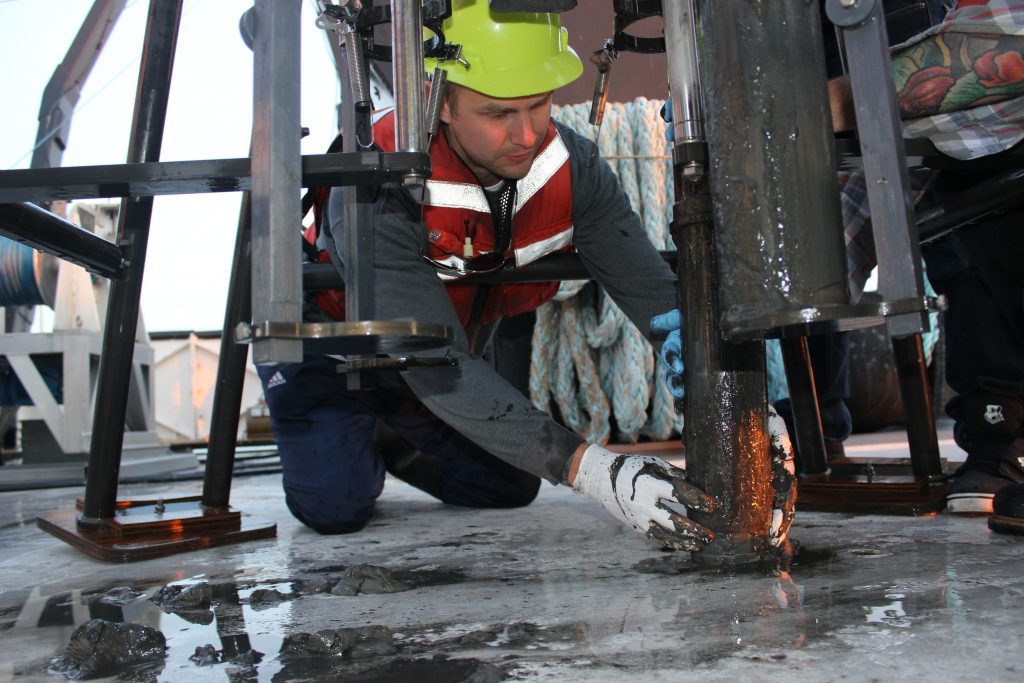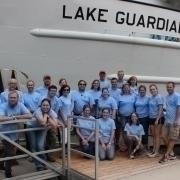
Penn biology teacher works with EPA on Lake Michigan summer research program
Posted on August 6, 2015Penn biology teacher John Gensic, was one of 15 educators chosen from more than 60 applicants, to work alongside scientists from the U.S. Environmental Protection Agency (EPA) this summer on a research project on Lake Michigan. As part of the Lake Michigan Shipboard Science Workshop, Gensic and the scientists worked on onboard the research vessel Lake Guardian from July 12-18, 2015.
“This was a once in a lifetime experience,” Gensic recounted. “Since I was a kid, there have been many things I’ve always wondered about Lake Michigan. This trip addressed some of these questions from how the bottom of Lake Michigan looks and functions, to how scientists gather information regarding the Great Lakes. Yet, there is still so much we don’t know.”
Gensic and the other teachers evaluated the presence of microplastics and assessed the impact of aquatic invasive species—particularly zebra and quagga mussels—on Lake Michigan’s ecosystem. Samples were analyzed onboard the research vessel’s laboratories.
With the goal in mind for the participating teachers to take their experiences back to the classroom, the research projects focused on food-web dynamics, endangered and invasive species, climate change, plastics pollution and water contaminants. By encouraging Lake Michigan stewardship opportunities for and to the students, perhaps some children would even be encouraged to do study scientific exploration and conservation of the Great Lakes.
“Every trip I take to the beach will be forever changed. I experienced firsthand many concepts about scientific research and Lake Michigan that I will take directly back to my students and fellow educators,” Gensic said. “I think I share a passion for Lake Michigan with many of its regular visitors from our area. This experience has broadened my understanding of how the lake and our region works.”
Facilitators from the Illinois-Indiana Sea Grant (IISG) helped structure the educational aspects. The goal is for teachers to take their experiences back to the classroom and inspire their own students to want to do scientific exploration of the Great Lakes.
“Educators were immersed in authentic, place-based learning, working side by side with scientists to address current environmental issues. Using innovative sampling and monitoring equipment, teachers were provided with once-in-a-lifetime professional development experience to explore science up-close and personal,” said Terri Hallesy, IISG education coordinator. IISG is part of NOAA Sea Grant, a nationwide network of 33 science-based outreach and education programs.
The workshop was supported by the EPA and received funding from the Great Lakes Restoration Initiative and Center for Great Lakes Literacy (CGLL). CGLL fosters informed and responsible decision-making that advances basin-wide stewardship by providing hands-on experiences, educational resources and networking opportunities.
Penn High biology students will directly benefit from Gensic’s summer learning experience and scientific findings in the coming months. To read about Gensic and all the teachers’ experiences during the project, read the Center for Great Lakes Literacy daily blog of their activities.

Last Modified August 6, 2015
